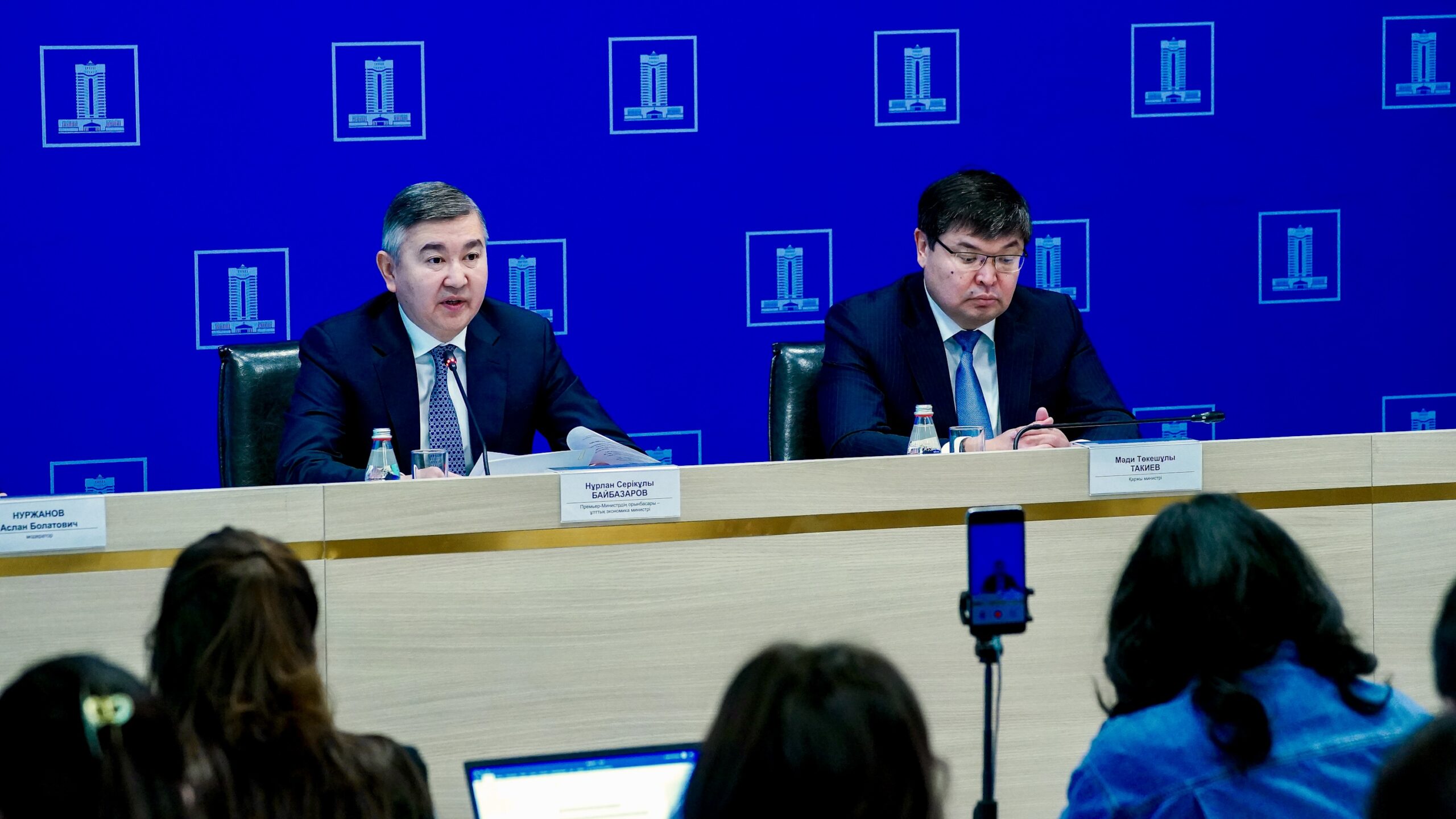ASTANA – The Kazakh government has adopted a National Infrastructure Plan until 2029, which includes 204 projects in energy, transport, digital, and water infrastructure sectors worth nearly 40 trillion tenge (US$81.8 billion), Deputy Prime Minister and Minister of National Economy Nurlan Baibazarov said during an Oct. 15 press conference.

Deputy Prime Minister and Minister of National Economy Nurlan Baibazarov (left) and Minister of Finance Madi Takiyev (right). Photo credit: primeminister.kz
In a statement released by the Prime Minister’s press service, Baibazarov highlighted that Kazakhstan’s 4% economic growth was driven entirely by the non-oil sector. The manufacturing industry also showed positive dynamics: out of 180 new projects planned for this year, 56 enterprises have already begun production.
The government has allocated over two trillion tenge (US$4 billion) to implement four large-scale infrastructure initiatives of President Kassym-Jomart Tokayev – gasification, road construction, rental and mortgage housing, and modernizing utilities.
“To launch a new investment cycle and fulfill the tasks, the Concept of Investment Policy until 2029 has been updated. Its main goal is to attract at least $150 billion in foreign direct investment and increase it in fixed capital to 23% of GDP,” Baibazarov added.
He recalled the ratified intergovernmental agreement with Qatar, which brings approximately $20 billion in industrial and infrastructure projects. Meanwhile, the Islamic Development Bank is expected to finance over $1 billion for water projects in Kazakhstan. There is also a preliminary intention to fund around 30 projects worth over $7 billion in water resources management, construction and reconstruction of transport infrastructure, healthcare, the oil and gas sector, and education.
“Work with international financial institutions has been intensified. Projects on green infrastructure, manufacturing industry, and others valued at nearly $9.5 billion are under consideration,” Baibazarov said.
The government also undertakes structural reforms, starting to implement the Decree on the liberalization of the economy signed by President Tokayev. It has introduced a moratorium on the creation of new quasi-public entities until the end of 2026.
Additionally, Kazakhstan plans to privatize state-owned enterprises by 2028, while also drafting a new Tax Code aimed at simplifying tax reporting, reducing the number of taxes, and strengthening incentives for processing industries. The proposed tax reforms are expected to boost state revenue by 1.8 trillion tenge (US$3.6 billion).
